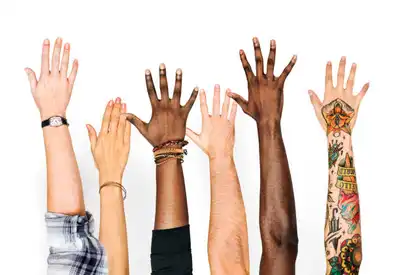What is Democracy in South Africa?

What is the definition of Democracy?
In Simple terms, Democracy is a government in which the highest power is held by the people and is usually used through representatives.
What is Democracy according to the South African Constitution?
The Constitution empowers Democracy by giving every person over 18 the right to vote and ensuring one voter’s roll for all adult citizens, regular elections, and a multi-party system of government.
What are the four principles of Democracy in South Africa?
The following are the 4 Principles of Democracy in South Africa;
Human dignity, the achievement of equality, and the advancement of human rights and freedoms.
Non-racialism and non-sexism.
Supremacy of the Constitution and the rule of law.
- Is Amazon in South Africa? How to Access an Amazon Store in South Africa
- Is Ascension Day a Public Holiday in South Africa?
- Is Mandarin an Official Language in South Africa?
- Is Paypal Available in South Africa?
- Is Weed Legal in South Africa? The Law On Cannabis in South Africa
- List of Businesses You Can Start in South Africa
- What Does IEC Stand for in South Africa?
- What is Corn Starch in South Africa?
What are the three democratic principles?
The Basic principles of Democracy are Legal equality, political freedom, and the rule of law.
What are the five democratic structures in South Africa?
Legislative authority. Parliament (national).
Executive authority. Cabinet (national).
Legislative authority (provincial) Provincial Legislature.
Executive authority (provincial) Executive council.
Judicial authority.
Institutional Performance Monitoring and Evaluation (IPME).
What is Democracy?
Democracy is a form of government by the people, either as direct democracy or as a representative democracy. A democracy can be governed by the majority rule of the people, in which no person or group has the authority to make or implement laws to rule over other people. This authority is given to the people either directly or through a group selected by the people to make and enforce laws. Democracy can also refer to a state or society in which the people have supreme or ultimate authority through direct or indirect representation, usually through voting, to make and implement laws.
Different Types of Democracy
There are different types of Democracy. Democracy is not a specific form of government but a concept of governance. So, there can be other types of Democracy.
– Direct Democracy: This kind of Democracy is found in ancient Athens. The people made all the decisions and voted directly on essential issues. Such a system would be complicated to operate in today’s large and complex societies.
– Representative Democracy: In this form of Democracy, the people do not vote on every issue but elect representatives to vote on issues for them. The advantage of representative Democracy is that it can be much more efficient than direct Democracy.
– Participatory Democracy: In this form of Democracy, the people work together to make decisions about issues. This is done by setting up special organizations or committees to study issues and make recommendations. Then the people meet to discuss the recommendations and make decisions through a vote.
– Deliberative Democracy: In this form of Democracy, the people discuss the issues and make decisions through deliberation. A deliberation is a form of Democracy that is not about voting but reasoned decision making.
What is a Republic?
A republic is a form of government where the people rule themselves as a democracy. A republic is not a specific form of government but a kind of government. And that is why there are different types of republics.
– Parliamentary Republic: This is a republic in which the people elect their representatives to make and implement laws through an assembly (or parliament). In this type of republic, the people do not vote on every issue but elect representatives to vote on issues for them.
– Presidential Republic: In this type of republic, the people directly elect a president to make and implement laws. The president has more power than in a parliamentary republic.
– Constitutional Republic: In this type of republic, the people rule themselves as a democracy through a written constitution. The Constitution is a set of rules or laws that say how the government is organized and how it can make and implement laws.
How is Democracy different from a Republic?
The main difference between Democracy and a republic is that in a democracy, the people directly make and implement laws. In contrast, in a republic, the people elect representatives to make and enforce laws for them. In a democracy, the people rule themselves, while in a republic, the people are governed by their elected representatives. A significant reason why the government in the United States is not a democracy but a republic is to protect the rights and freedoms of the people. A democracy is a form of government that can easily be abused by the majority (mob rule) to trample the rights and freedoms of the minority. On the other hand, a republic protects the rights and freedoms of all people, majority and minority alike.
When There Is No Democracy
There are many examples of no democracy in a region or country. Let us take a look at some examples:
– Authoritarianism: This is a form of government in which one person or a small group of people rule with no real law or democratic rule. The majority of the people are not free or do not have any rights. This type of government is very common in developing countries.
– Dictatorship: This is a form of government in which one person rules with no real law or democratic rule.
– Colonialism: Colonialism is where a nation or a group of nations rule over another nation or a group of nations. Usually, colonial powers make the laws for the colonized people. Colonialism is usually associated with a very little or no democracy in any of the nations.
Share This





